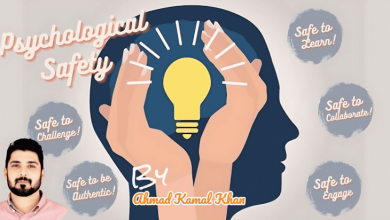Keynote 3 Demonstrates How BlockDAG’s 2,380% ROI Competes with Bitcoin’s $68K Price & Ethena’s Market Disruption

Value creation transcends just coding—it’s nurtured by belief. Bitcoin has shown that conviction can power a global financial system alternative. Meanwhile, Ethena demonstrates how utility can redefine financial stability in decentralized finance (DeFi). Beyond technical specifications and market performance, a unique force emerges, shaped by human engagement rather than mere excitement.
BlockDAG (BDAG), with a community now exceeding 100,000 members, revolves around collective engagement and purpose. With $209.5 million gathered and ROI of 2,380% since its first batch, BlockDAG is more than a network—it’s a growing identity. In the virtual world, community connection proves to be an invaluable asset.
Bitcoin: Pioneering Digital Value
Launched by the anonymous Satoshi Nakamoto in January 2009, Bitcoin set the stage as the original decentralized digital currency. Operating on a proof-of-work system, it involves miners who validate transactions and secure the network through complex problem-solving.
Starting at less than $0.01, Bitcoin has progressively become a preferred store of value, acting as a hedge against inflation. By November 2024, it peaked at $73,737 and as of March 28, 2025, it’s priced at $68,504—an immense rise of 685 million percent from its initial value.
For those who embraced Bitcoin early in 2010, the financial rewards have been transformative. Despite various challenges and regulatory scrutiny, Bitcoin continues to hold the highest market cap in the crypto market and remains a cornerstone in digital asset portfolios.
Ethena: Innovating Stability in Web3
Ethena debuted in early 2024 as a pioneering DeFi protocol that redefines stable assets through USDe, a synthetic dollar unlinked from traditional reserves. Employing delta-hedging and on-chain liquidity, it maintains its stability, presenting a viable alternative to fiat-pegged stablecoins.
Gaining rapid traction, Ethena achieved a market valuation surpassing $2 billion in its inaugural year. Its governance token, ENA, started at approximately $0.18 and by March 28, 2025, it trades at $1.02—a 466% increase.
Ethena also offers stakers genuine yields derived from on-chain derivatives, ensuring capital efficiency and added utility. Its transparent operations, thorough documentation, and swift ecosystem expansion have positioned it as a notable project within the year, particularly appealing to those seeking decentralized, productive stablecoin options outside traditional backing frameworks.
BlockDAG’s Thriving Global Community: Over 100K Members and Expanding
BlockDAG is transcending the typical focus on technical specs and market performance by cultivating a vibrant community. Boasting over 100,000 members across various social platforms, BlockDAG is fostering a movement built on shared values and active participation, rather than just technical development.
Whether it’s casual miners engaging with the X1 App or gamers entering the crypto scene via TG Tap Miner, BlockDAG offers a personal touch in user involvement. This connection is evident as the community has expanded rapidly, with 19 billion coins already distributed in the presale, gathering $209.5 million across 27 batches. With an impressive 2,380% increase in value since the first batch, the community’s growth is about more than just numbers.
Globally, from Telegram to Twitter, enthusiasts share strategies, discuss updates, and adapt the platform into various languages, creating a rich, diverse culture around BlockDAG. This isn’t merely participation; it’s about forming a collective identity with the project at its core, reflected in vibrant discussions and shared content.
This organic growth of BlockDAG is a grassroots movement, shaped one conversation, one connection, and one contributor at a time. As the Mainnet launch approaches, the community is not just waiting to be part of the future—they are actively shaping it.
The Impact of Community-Driven Initiatives
While technology forms the base, it’s the community that breathes life into it. Bitcoin introduced a new perspective on finance, and Ethena offered a fresh take on stability within decentralized systems. BlockDAG, however, is pioneering a future where Web3 transcends mere transactions to become a space of active community engagement.
With a robust base of over 100,000 members, substantial funds raised in crypto presale, and an expanding international footprint, the BlockDAG community is not just building a network; they are crafting a culture. As digital platforms evolve from tech projects to thriving ecosystems, it becomes evident that the most impactful platforms are those where users feel a sense of belonging.
Presale: https://purchase.blockdag.network
Website: https://blockdag.network
Telegram: https://t.me/blockDAGnetworkOfficial
Discord: https://discord.gg/Q7BxghMVyu






